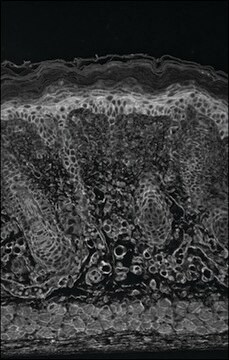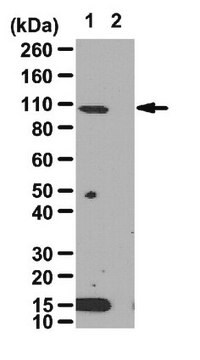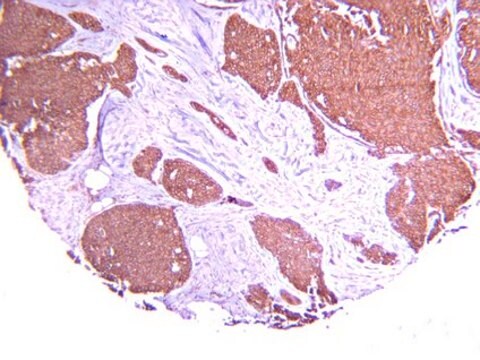PLA0081
Rabbit anti-HIF1-alpha Antibody, Affinity Purified
Powered by Bethyl Laboratories, Inc.
Sinónimos:
ARNT interacting protein, ARNT-interacting protein, HIF-1-alpha, HIF-1A, HIF-1alpha, HIF1, HIF1-ALPHA, MOP1, PAS domain-containing protein 8, PASD8, alpha subunit (basic helix-loop-helix transcription factor), bHLHe78, basic-helix-loop-helix-PAS protein MOP1, class E basic helix-loop-helix protein 78, hypoxia inducible factor 1, hypoxia-inducible factor 1, hypoxia-inducible factor 1 alpha isoform I.3, hypoxia-inducible factor1alpha, member of PAS protein 1, member of PAS superfamily 1
About This Item
Productos recomendados
biological source
rabbit
Quality Level
antibody form
affinity purified immunoglobulin
antibody product type
primary antibodies
grade
Powered by Bethyl Laboratories, Inc.
species reactivity
human, mouse
technique(s)
immunocytochemistry: 1:100-1:500
immunohistochemistry: 1:100-1:500
immunoprecipitation (IP): 2-10 μg/mg
western blot: 1:2,000- 1:10,000
accession no.
Q16665
shipped in
wet ice
storage temp.
2-8°C
target post-translational modification
unmodified
Gene Information
rabbit ... HIF1-alpha(3091)
Immunogen
Physical form
Other Notes
Disclaimer
¿No encuentra el producto adecuado?
Pruebe nuestro Herramienta de selección de productos.
Storage Class
12 - Non Combustible Liquids
wgk_germany
WGK 1
flash_point_f
Not applicable
flash_point_c
Not applicable
Elija entre una de las versiones más recientes:
Certificados de análisis (COA)
¿No ve la versión correcta?
Si necesita una versión concreta, puede buscar un certificado específico por el número de lote.
¿Ya tiene este producto?
Encuentre la documentación para los productos que ha comprado recientemente en la Biblioteca de documentos.
Nuestro equipo de científicos tiene experiencia en todas las áreas de investigación: Ciencias de la vida, Ciencia de los materiales, Síntesis química, Cromatografía, Analítica y muchas otras.
Póngase en contacto con el Servicio técnico








